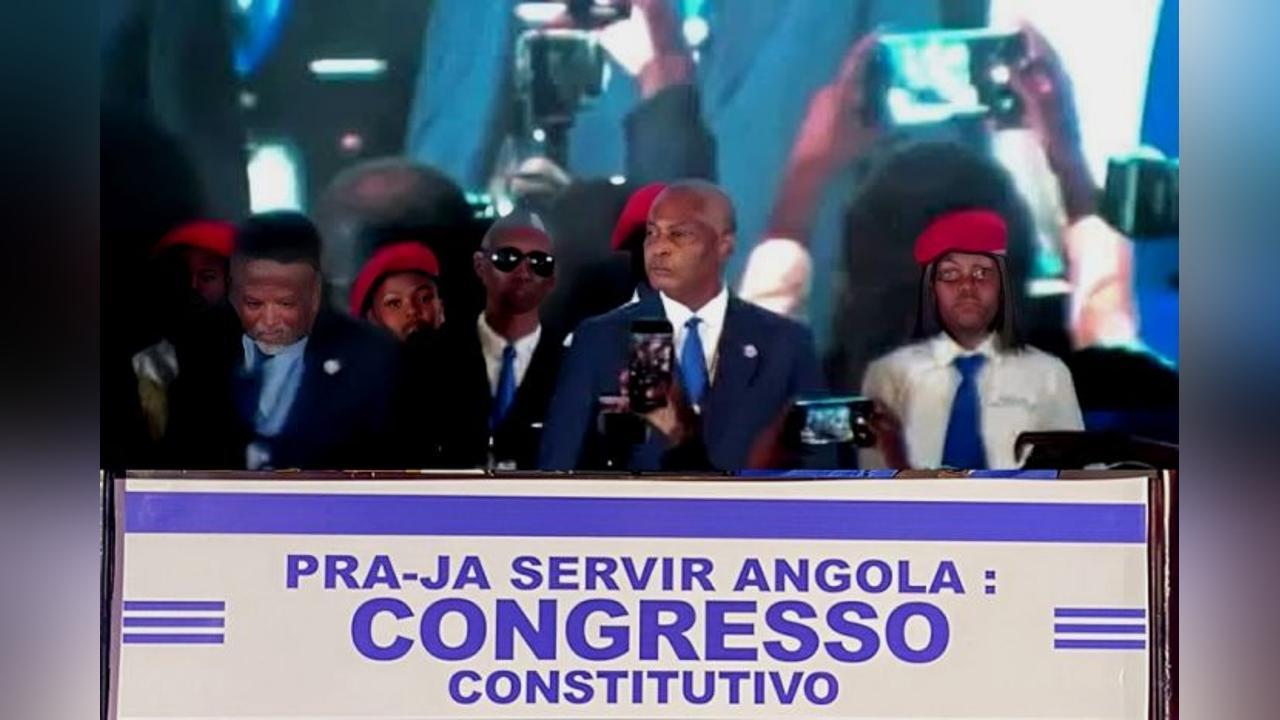Africa-Press – Angola. The constituent congress of PRA-JA Servir Angola, in addition to electing the president, will define a vision and political position on the future of the United Patriotic Front (FPU), which brings together several Angolan opposition parties, said the general coordinator and candidate for leadership.
Abel Chivukuvuku, who spoke at the opening of the congress, said that for four days, the delegates to the congress will focus their attention on replacing the provisional bodies with definitive bodies and their adaptation to the statutes of this party, legalized in October 2024.
According to Abel Chivukuvuku, who is running for party leadership with Francisco Nkanga, in addition to electing the party’s president and vice-presidents, the congress aims to adjust the essential indicators of the strategy for the electoral period in 2027.
This congress, which will elect the first president of PRA-JA Servir Angola, continued Abel Chivukuvuku, should outline a global agenda for obtaining material and financial resources, for the implementation of the 2025-2027 political agenda and also for the 2027 electoral campaign.
“It should define a vision and political position on the future of the United Patriotic Front (FPU),” said Abel Chivukuvuku about this political platform created for the 2022 general elections, which is coordinated by the National Union for the Total Independence of Angola (UNITA), the largest Angolan opposition party, integrating the now PRA-JA Servir Angola party, the Democratic Bloc and members of civil society.
Regarding the external vision, the candidate for the leadership of PRA-JA Servir Angola said that the congress will also define an international relations agenda, based on principles, values and reciprocity of interests, in addition to adherence to an international political family.
Regarding the political, economic and social situation in Angola, the mentor behind the creation of this party, presented to Angolan society in 2019, said that the country, about to celebrate 50 years of independence, still has “a lot” to do.
According to Abel Chivukuvuku, after five decades of independence the country still experiences hunger and “the most striking social characteristic of Angolans is poverty”, with a large proportion of people still living “in indigent poverty”.
“Fifty years after achieving independence, young people are experiencing the scourge of unemployment, many of them emigrating to other places in search of a better future, when they should be the lever for building our country”, he highlighted.
Regarding the country’s democratic state, Abel Chivukuvuku stated that there is still “a deficit” in terms of principles and values, considering that Angola is still “a state in transition to democracy” because the presence of some democratic attributes is lacking in the lives of Angolans.
For the politician, the country still suffers from “erratic economic choices, negligence, corruption and a lack of transparency in governance”.
“What we have seen in recent times is a kind of overlap, one team leaves, another team arrives, but with the same program, the same practices, the same vices and the same shortcomings”, he stressed.
Angola celebrates 50 years since it became independent on November 11 this year, however, it continues to live “with a mentality of denying history”, he said, referring to the “difficulty in recognizing that there were three leaders who participated in the achievement of independence”.
“Álvaro Holden Roberto, Agostinho Neto and Jonas Malheiro Savimbi”, he recalled, considering that this would be “the appropriate moment” to pay tribute to these historic figures of the country.
According to Abel Chivukuvuku, this is the right time for democratic change, which does not mean “change of people”, but rather of ambition, vision”, which promotes “dialogue, inclusion and harmony among all.
“A change in behavior, in human sensitivity and that will make Angola and Angolans peaceful, orderly and democratic,” he noted.
For More News And Analysis About Angola Follow Africa-Press






